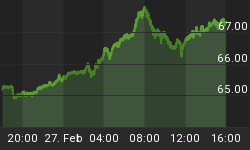As far as I am concerned the more competition the better. The result is always lower prices and better service. Thus, I welcome the Wall Street Journal report Google Checks In to the Hotel Business.
Google Inc (GOOG) is moving boldly to play a larger role in booking hotel rooms -- at the risk of offending some of its most important advertisers.
Google is adding more photos and reviews to its hotel listings, so they increasingly resemble those of travel search sites such as Priceline Group Inc. (PCLN) Expedia Inc(EXPE) and TripAdvisor Inc. (TRIP). And it is more aggressively promoting its "hotel-price ads" that post room rates directly as travel-search sites do.
The idea is to encourage travelers to plan more of their trips directly on Google. In the process Google gets them closer to making a booking, which experts expect will make referrals more valuable, prompting travel agencies and hotel operators to pay more for clicks on Google ads over time. It also encourages more hotel operators to place ads on Google directly, bypassing online travel agencies that charge commissions of up to 25%.
In its latest move related to hotels, Google on Monday struck a licensing deal that will give it access to technology from hotel-booking software startup Room 77 while adding engineers to Google's hotel-search team.
But the move is risky: Online travel agencies are among Google's biggest advertisers. Priceline Group will spend more than $1.5 billion in 2014 on Google advertising and Expedia could spend another $1 billion, mainly to attract hotel bookings, estimates RBC Capital Markets analyst Mark Mahaney. Those two alone could account for nearly 5% of Google's ad revenue this year, Mr. Mahaney estimates, even though the company has over a million advertising customers.
The hotel-price ads on Google are "a game changer," said Erik Muñoz, an executive director at hotel-booking software company SiteMinder. He said Google's new ads allow hotels to compete with online travel agencies for a direct booking, potentially driving down their costs.
"Any time you're dealing with Google it pays to be careful and know what its long-term strategy is," says Tom Botts, chief customer officer at Denihan Hospitality Group, which is testing the virtual tour at its Miami property.
The relationship between Google and online travel agencies can be even more tense. They fear Google's moves to establish direct relationships with hotels, said one executive of Orbitz Worldwide Inc. (OWW) Expedia and TripAdvisor are members of FairSearch.org, an advocacy group that highlights what it sees as Google's anticompetitive practice of promoting its own services in search results. Even so, they remain big spenders on Google advertising because of the valuable leads.
Competition is a Good Thing
As I said, the more competition the better. What we really need is Google, Wal-Mart and other companies competing to lower the cost of education and healthcare.
Eventually, I assure you that will happen. In regards to healthcare, lower prices are on the way and Obamacare will not have a thing to do with it.
In regards to education, please see ...
-
Teaching Revolution: Online, Accredited, Free; Start Learning Now!
-
Future of Education is At Hand: Online, Accredited, Affordable, Useful















